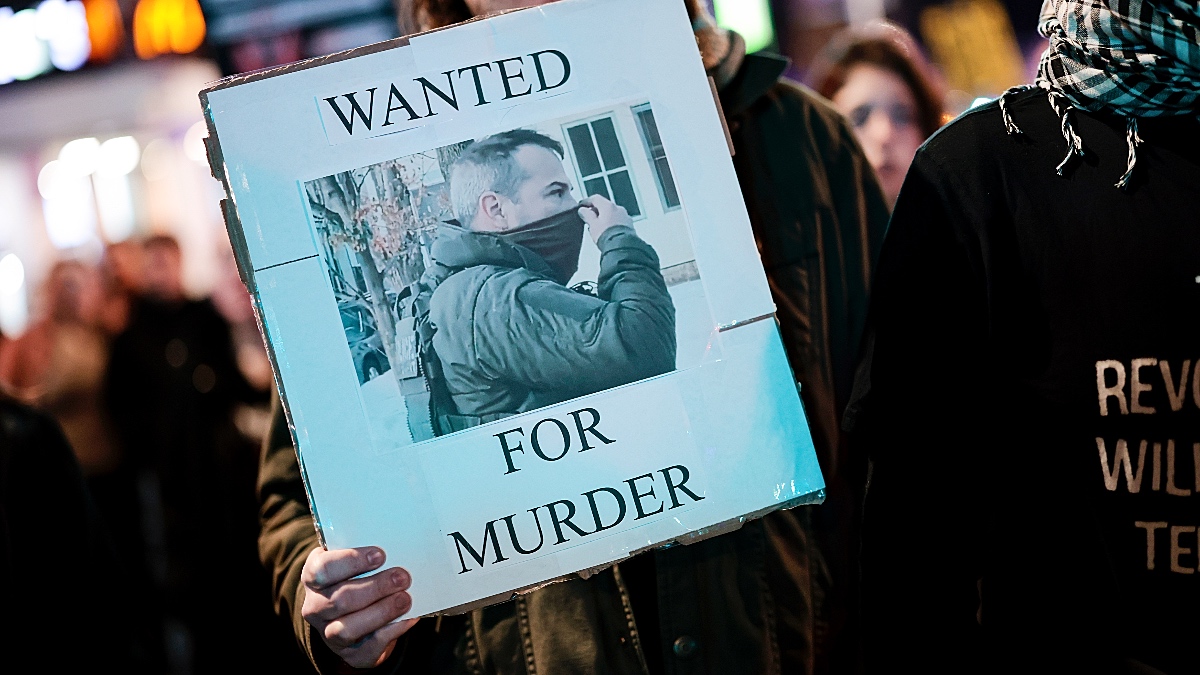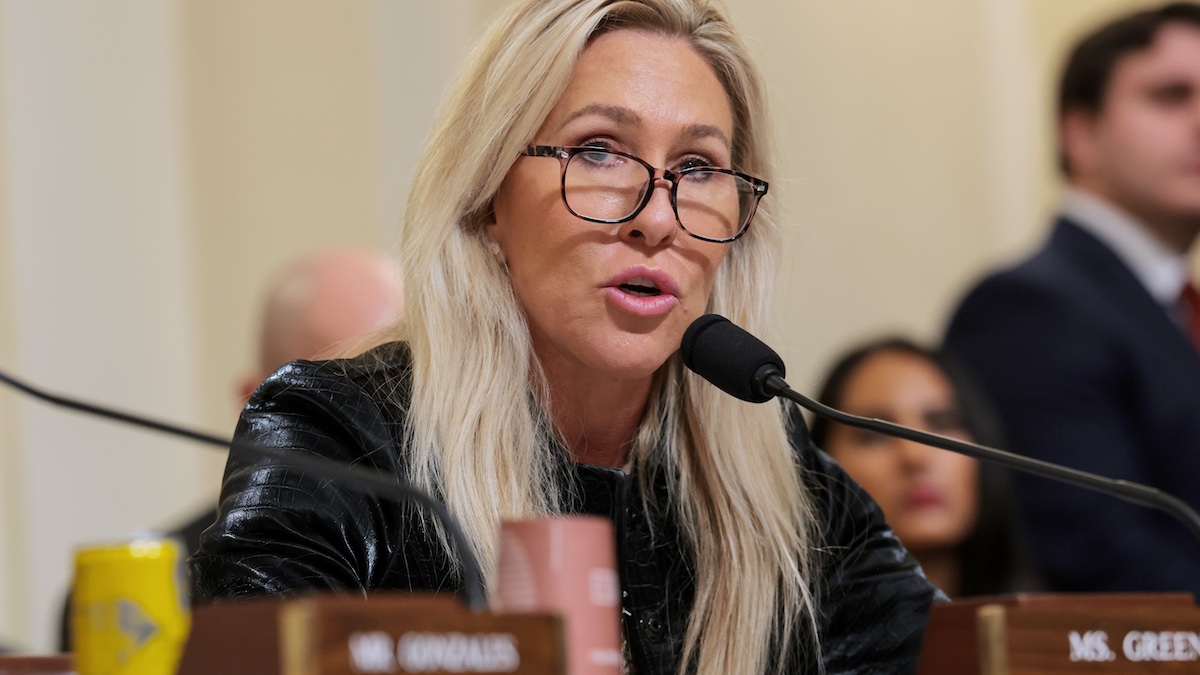Five episodes were provided prior to broadcast.
In the wake of tragedy last summer, a new season of Netflix’s chaotically clever prison drama Orange Is The New Black was like a warm, empowering hug after a particularly terrible day. The show was bold, brave, and boisterous to the extent that it was easy to wonder if anyone behind the scenes ever worried about crossing a line or going too far with its trenchant storylines.
It felt like Orange Is The New Black was at its peak, firing on all cylinders with nary a boring storyline or dull side character in sight for thirteen straight hours of pure, binge-this-in-two-sittings Golden Age TV (which you bet I did). The world is still spiralling, maybe even more so than it was last year, and the return of the women of Litchfield in season 5 of Orange Is The New Black is yet another lynchpin of sanity — somewhat ironically given the new season’s bananas main plot — that does more than provide refuge for those afraid of the state of the world; it reminds them that there’s still hope in a system that’s completely and utterly stacked against them.
The chaos picks up seconds after the season 4 finale, where Daya (Dascha Polanco) has a few of Litchfield’s guards at gunpoint following the beginnings of a prison riot, which the women launched after learning that the guard who accidentally killed Poussey (Samira Wiley) would not be brought to justice in order to keep the scandal quiet. Daya’s arc last year was grievous, beginning with the loss of her baby into the foster care system and followed by her becoming somewhat rudderless after her mother Aleida (Elizabeth Rodriguez) was released from the prison.
Season 5 of the show chews long and heavy on Daya’s internal struggles, particularly after the riot intensifies and Daya finds herself in a defacto leadership role. The season is undoubtedly one of the most serialized so far, but creator Jenji Kohan never forgets the show’s roots as a sort of novella of stories, of women and their struggles with power, with substance abuse, with family, with lovers, with each other, with themselves. The show feels shattering because its characters are shattered, and the drama of watching them put themselves back together across a season of riotous chaos is — and I seem to be saying this every year — Orange Is The New Black at its best.
“Are you insane?” Caputo (Nick Sando) asks Taystee (Danielle Brooks) and her group early on in the season. “No,” she responds bluntly. “We’re angry.” That anger headlines most of season 5, particularly as Taystee struggles to deal with the fact that no one else seems to care about bringing justice to Poussey’s murder. In both of their spotlighted roles, Polanco and Brooks are marvellous to watch, showing an immense amount of insecurity and fear within carapaces of iron-clad strength that years in Litchfield have grown. They, and the evolving cast at large, are not just avatars of juicy plot or tweet-worthy cliffhangers, they’re real people.
If not for them, and the show’s deft writing, nothing around them would work, and thankfully it all still does. Season 5 is a propulsive cliffhanger machine that fans will probably down in one go, if they don’t keep wasting time rewinding the best jokes (“He has the kind of hair you want to sit on” “That’s a thing?” “Everything’s a thing”) and playing over the nuttiest twists. It’s impressive that Kohan and the writers are still managing to tell stories as intensely personal and believable as this, at the same time as housing them within the parameters of a show that’s this downright fun.

Because that’s what Orange Is The New Black is really, even after the darkest turns and saddest lows — it’s a show that’s got pleasure in its DNA, both literally for its characters and figuratively for its audience. Comic relief Crazy Eyes (Uzo Aduba) takes a slight back seat early in the season, but the Odd Couple shenanigans of Big Boo (Lea DeLaria) and Pennsatucky (Taryn Manning) are as on point as ever, and the slow societal degradation of the prison takes on darkly comic aspects the more season 5 trucks along, particularly in what the inmates decide to do with their former captors.
There’s a more obvious political charge to the stories this year, but it’s all done with humor and grace. In one of the funniest I-probably-shouldn’t-be-laughing gags at the beginning of the season, multiple characters equate some of the events happening inside of Litchfield to horrible real-life tragedies and shootings that have occurred over the past few years, most since Orange Is The New Black itself began. The joke? Not one of the characters repeats a reference because there are enough mass shootings to go around.
As is usual with this show, I barely have room to even mention some of the best side plots, like a few brief, insightful scenes between a still-devastated Soso (Kimiko Glenn) and Martha Stewart stand-in Judith King (Blair Brown), who manage to provide breathers between the action of the riot. There’s also the work of a few outside guards who are trying to figure out what’s happening in Litchfield, but in season 5 Orange Is The New Black feels as laser-focused as ever on its beleaguered-yet-pissed-off female characters, and the extents they’re willing to go to in order to find some form of satisfaction in their lives.
Slightly less pissed-off this season is Piper (Taylor Schilling), who’s still a new woman following her swastika branding in season 4, and she’s regained some of her lightness as she reunites with Alex (Laura Prepon) and the two attempt to avoid the riot and its inevitable terrible conclusion as much as possible. Schilling is a constant reminder of how much the show has grown over the past four years, and her subtle shifts from uber ditzy suburbanite to broken down inmate to aspiring gangsta-with-an-a-on-the-end to maybe, finally, just being happy with herself, is all showcased in her humorously droll season 5 performance.
But really, the appeal of Orange Is The New Black lies in its ordinariness. The show may not appear ordinary, and it actually may not be ordinary at all given how unclear it is where all of these board-resetting plotlines will take us — which is perhaps the biggest fear of the new season — but it is achingly ordinary in moments where it matters. Characters are who they are with no need for intense preamble or justification or fear or outside retribution, which is an interesting concept given the somewhat scary nature of prison.
They are women, they are men, they are lesbian, they are gay, they are transgender, they are black, they are Dominican, they are happy, they are furious — the show is a whirlwind of effortless inclusion that still generates fresh, fascinating stories all these years later. That’s the miracle of Orange Is The New Black, and of Jenji Kohan — nothing ever feels forced or repetitive about the show and its confined setting. In fact, it feels like the restriction has spurred even more creativity from the writers this year. There’s a fear and a scrappy anger to the dialogue and interactions happening around the prison, even more so than before. Or, as one inmate says early on, a well enough metaphor for the show as a whole: “Welcome to Litchfield 2.0: still busted ass, but getting better by the minute.”










Published: Jun 8, 2017 03:03 pm